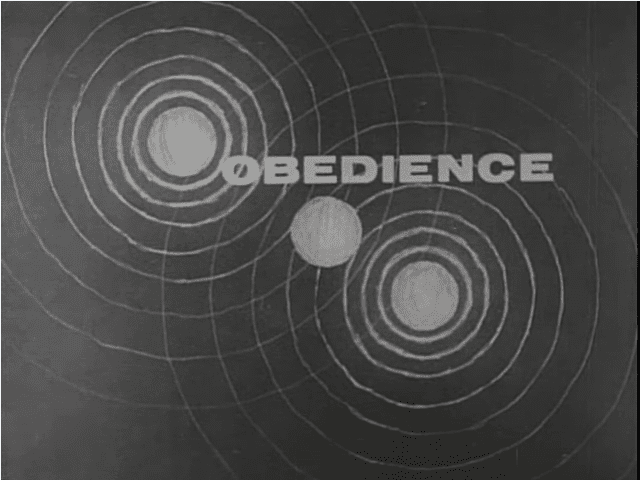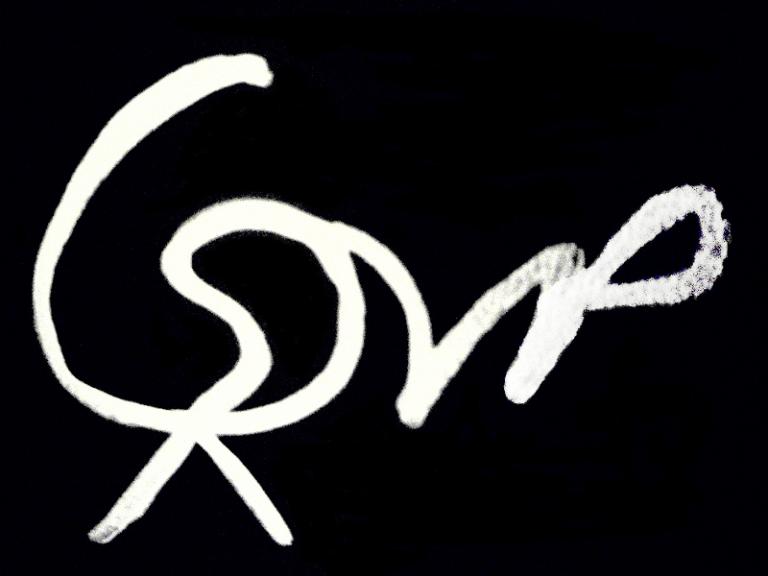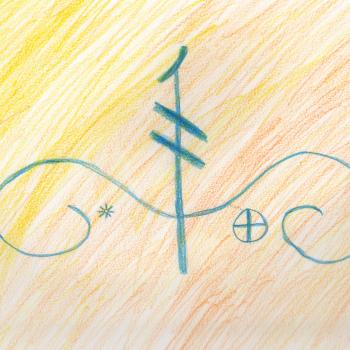I ended up staying in on the night of the Winter Solstice a few weeks ago. I had planned to go to a friend’s party/ritual but felt called to stay home and cultivate some yin energy at the dark of the year.
I realized that I needed to set some intention for the coming year, for intention is the first step in any magical working. As I thought of what I needed, for magic answers need, I ended up creating a sigil for the theme “Creativity, Insight, and Willpower”.
As I’ve thought about it more, it has occurred to me that this isn’t just what I need. It’s what we all need.
I think we can always see the utility of willpower, and insight — intuitively apprehending the nature of things — is sort of where we live as magical people.
But creativity? We sometimes think of creativity as a light, playful thing, an airy-fairy luxury for the good times. But this is not so. Creativity is essential for liberation. More and more we hear the slogan “A better world is possible”; to envision that world takes an act of creative imagination.
Creativity In Difficult and Dangerous Times
Creativity is what we most need in difficult and dangerous time. For as Robert Shea and Robert Anton Wilson wrote in The Illuminatus! Trilogy, “Freedom won’t come through Love, and it won’t come through Force. It will come through the Imagination.”
In an old blog post, I called that statement the “First Law of Political-Artistic Liberation” — FLOPAL, to give it a snappy (?) acronym.
The idea has been much on my mind lately, so I’m going to recycle that rambling old blog post here…settle in for a “long read”, friends.
Shea and Wilson explain the idea later on in the book, in a discussion between the characters Hagbard Celine and Simon Moon, as they wait for the cops and the tear gas in Chicago in 1968:
“Chairman Mao didn’t say half of it,” Hagbard replied holding a handkerchief to his own face. His words came through muffled: “It isn’t only political power that grows out of the barrel of a gun. So does a whole definition of reality. A set. And the action that has to happen on that particular set and on none other.”
“Don’t be so bloody patronizing,” I objected, looking around a corner in time and realizing this was the night I would be Maced. “That’s just Marx: the ideology of the ruling class becomes the ideology of the whole society.”
“Not the ideology. The Reality.” He lowered his handkerchief. “This was a public park until they changed the definition. Now, the guns have changed the Reality. It isn’t a public park. There’s more than one kind of magic.”
“Just like the Enclosure Acts,” I said hollowly. “One day the land belonged to the people. The next day it belonged to the landlords.”
“And like the Narcotics Acts,” he added. “A hundred thousand harmless junkies became criminals overnight, by Act of Congress, in nineteen twenty-seven. Ten years later, in thirty-seven, all the pot-heads in the country became criminals overnight, by Act of Congress. And they really were criminals, when the papers were signed. The guns prove it. Walk away from those guns, waving a joint, and refuse to halt when they tell you. Their Imagination will become your Reality in a second.”
Much of the “Reality” of human experience is created by Authority. And not just the social and legal aspects — a few hundred years ago, the physical “Reality” that the Earth was the center of the Universe was enforced by putting Galileo under arrest. Less than a century ago, the Tennessee legislature and courts used the guns and clubs and cages at their disposal to create the biological “Reality” that Homo sapiens was not related to apes.
Even though these Authorities are gone, substantial numbers of people still dwell in the Realities they created.

Authority is hard-wired into the human brain — the famous Milgram experiment showed how our natural submission to Authority will get otherwise sane and ordinary people to commit acts of torture. Like gravity, Authority warps space around it: and like gravity, when concentrated to the extreme, it will form a black hole that tears up everything in reach.
Fighting Authority
What can fight Authority? What can break its Realities, disperse its warp?
Imagination.
Now, Authority needs Imagination, else it would have done away with it a long time ago. But it can’t let Imagination have free reign and pose a threat.
It needs enough Imagination around to design shiny new cars for people to buy to keep the economy of consumption humming, but not so much as to conceive of transit systems that will make cars obsolete. It needs Imagination to keep the propaganda machine going, but not enough Imagination to let people see through the propaganda. It needs Imagination to develop new strategies for war and new weapons, but not to imagine what it’s like to be on the receiving end, to see your loved ones crushed in the rubble of a bombing or to have your own leg blown off.
Authority needs Imagination in order to survive, but it can’t let Imagination run around unfettered, because Imagination is inherently a threat to the status quo power structure.
Every bit of human progress begins with an act of Imagination — before slaves can fight for freedom, before a community can organize to bypass kings or capitalists or any other forms of rulers, there must be someone who imagines that thing to be possible.
That is the line that Authority cannot let Imagination cross.
There’s a T. E. Lawrence quote from The Seven Pillars of Wisdom that I’ve always liked: “All men dream: but not equally. Those who dream by night in the dusty recesses of their minds wake in the day to find that it was vanity: but the dreamers of the day are dangerous men, for they may act their dream with open eyes, to make it possible.”
Those who dream only at night are those whose imagination is safely fettered.
Neither Force Nor Love
But — and here’s what Lawrence and his cohorts missed — those who dream that Force can change things, and act their dream through war, are not dreaming big enough either. For Force merely replaces one Authority with another. Meet the new Boss, same as the old Boss. You’ve broken away from one black hole, only to find yourself falling into another.
If Force can’t change things, what of Love? Isn’t Love the answer? All we need is Love, right?
But Love, in itself, is not enough. Many of those who burned witches and tortured heretics did so in the name of Love, convinced (by spiritual Authorities) that it was better for the victims to suffer here on Earth and repent, rather than lose the “reward” of some afterlife.
How many parents beat their children out of love! How many laws are made that lock people in cages, to lovingly protect them from themselves! “We love you and want what’s best for you, so we will punish you until you: stop being gay / stop believing that Earth moves around the Sun / stop using unauthorized drugs / stop having sex in a manner that we don’t approve of / stop practicing your false religion and join our true one / et cetera ad nauseam.”
Without Imagination, without the ability to put ourselves in the shoes of another and imagine life from their perspective, and the ability to imagine all the different ways to express and explore Love, and (most importantly) the ability to imagine that our view of what’s best for others just might be wrong and so we should be a little hesitant in backing our Love up with Force, Love can be the most binding of prisons.
So neither Force nor Love will do. And even Imagination, so long as it remains fettered, is a servant of Authority.
Unchaining Imagination With Skepticism
What can open Imagination’s chains, and help it bring about Freedom rather than preserve Authority?
There’s a type of Imagination that always challenges, that always asks, “Are you kidding me? Am I kidding myself?”, that always seeks radical honesty, and is therefore always hostile to Authority. We might, to introduce yet another Capital Letter Term into the discussion, call it Skepticism.
Though we must keep in mind that many (perhaps even most) who describe themselves as “skeptics”, are anything but. Those who ask that vital question “Are you kidding me?” only of certain parties — for example, “skeptics” who demand blinded controlled studies of acupuncturists but willingly go under the knife when no surgical procedure has ever passed a blinded controlled study, or 9/11 “skeptics” who question the NIST reports about the structural failure of the WTC towers but readily swallow anything they read on conspiracy websites — are not employing Skepticism.
True Skepticism begins with checking if we are kidding ourselves.
In a famous piece titled “Cargo Cult Science”, Nobel Prize winning physicist Richard Feynman said that “The first principle [of scientific integrity] is that you must not fool yourself — and you are the easiest person to fool. So you have to be very careful about that. After you’ve not fooled yourself, it’s easy not to fool other scientists.”
And the way to not fool yourself, is to imagine all the ways that you could be fooled. In his talk Feynman describes an experimenter in animal psychology who did an excellent job of this, in an experiment about training rats:
The question was, how did the rats know, because the corridor was so beautifully built and so uniform, that this was the same door as before? Obviously there was something about the door that was different from the other doors. So he painted the doors very carefully, arranging the textures on the faces of the doors exactly the same. Still the rats could tell. Then he thought maybe the rats were smelling the food, so he used chemicals to change the smell after each run. Still the rats could tell. Then he realized the rats might be able to tell by seeing the lights and the arrangement in the laboratory like any commonsense person. So he covered the corridor, and still the rats could tell.
He finally found that they could tell by the way the floor sounded when they ran over it. And he could only fix that by putting his corridor in sand. So he covered one after another of all possible clues and finally was able to fool the rats so that they had to learn to go in the third door. If he relaxed any of his conditions, the rats could tell.
That’s pretty imaginative, to think of all those factors, and make sure that you’re not fooling yourself with your experimental design.
We might contrast it with the strange case of N-rays, a phenomenon documented in 300 published articles by 120 scientists — before it was proven that they did not actually exist, and that those who observed N-rays were fooling themselves.
The N-rays case is often cited as a case where too much Imagination ran roughshod over science. But it’s not. It’s a case of too little Imagination: those who saw N-rays, didn’t imagine the possibility that what they were seeing was a creation of their own nervous system, without external referent.
Already Free
If we come back to the question of Authority and Imagination, and ask how Imagination might be freed, let’s try this on for size: Imagination is already free! It has been fooled by Authority into thinking that it is not. To become free it must become Skeptical and ask “Are you fooling me, or am I fooling myself, into thinking that I am chained, when in fact I am not?”
The first principle of artistic integrity — including integrity in the Arts Magickal — is the same as that of spiritual integrity and political integrity and scientific integrity: you must not fool yourself.
Authority relies on us fooling ourselves. It doesn’t have the resources to put together grand conspiracy plans to keep us under its thumb, but it doesn’t need them. It need only give us a few hints on how to fool ourselves, and we will quite easily create the Reality that it suggests.
With just a little encouragement, we will fool ourselves quite well into thinking that national boundaries, or property lines, or money, or copyrights, or laws, are as real as rain or dirt or gravity or poems, and can never be questioned and will never change.
We will readily believe that That’s Just The Way Things Are. It’s part of the pack-animal program wired into the brain, to accept the same Reality as the rest of the pack.
And at one time, when our distant ancestors were trying not to get eaten by large predators, perhaps that was useful. But it’s time to let it go now.
We can’t get rid of that neural circuit; but we can become aware of it, can hack around it, disconnect and preempt it, through the usual methods of mind-changing: meditation and magic.
And in the end, more than any political change of who is in office or what laws get passed, what we need for human liberation is that sort of change of mind. We must be able to create a new world in the mind before we can work to make it real.
So may 2019 bring us the creative power we need.


















